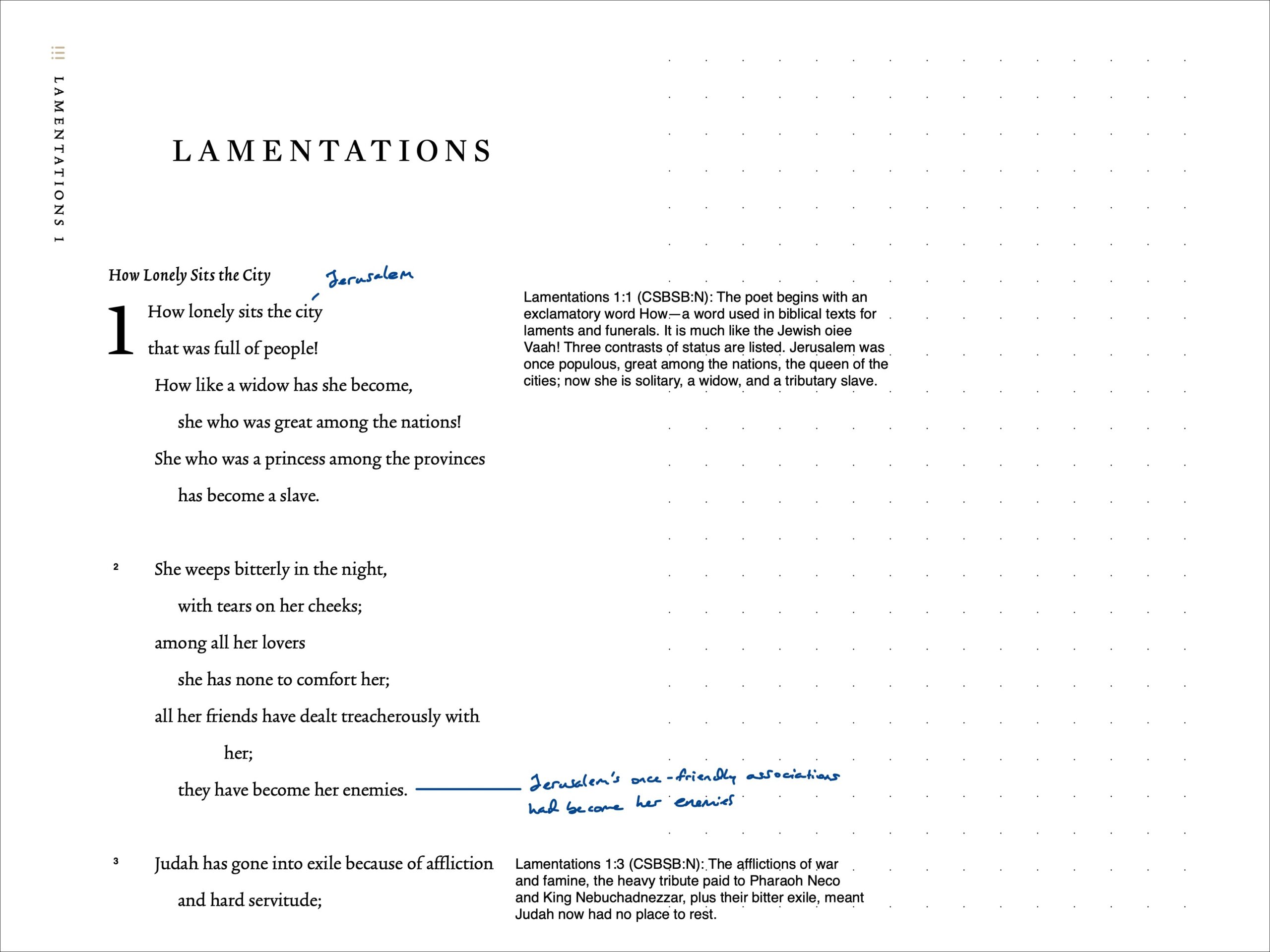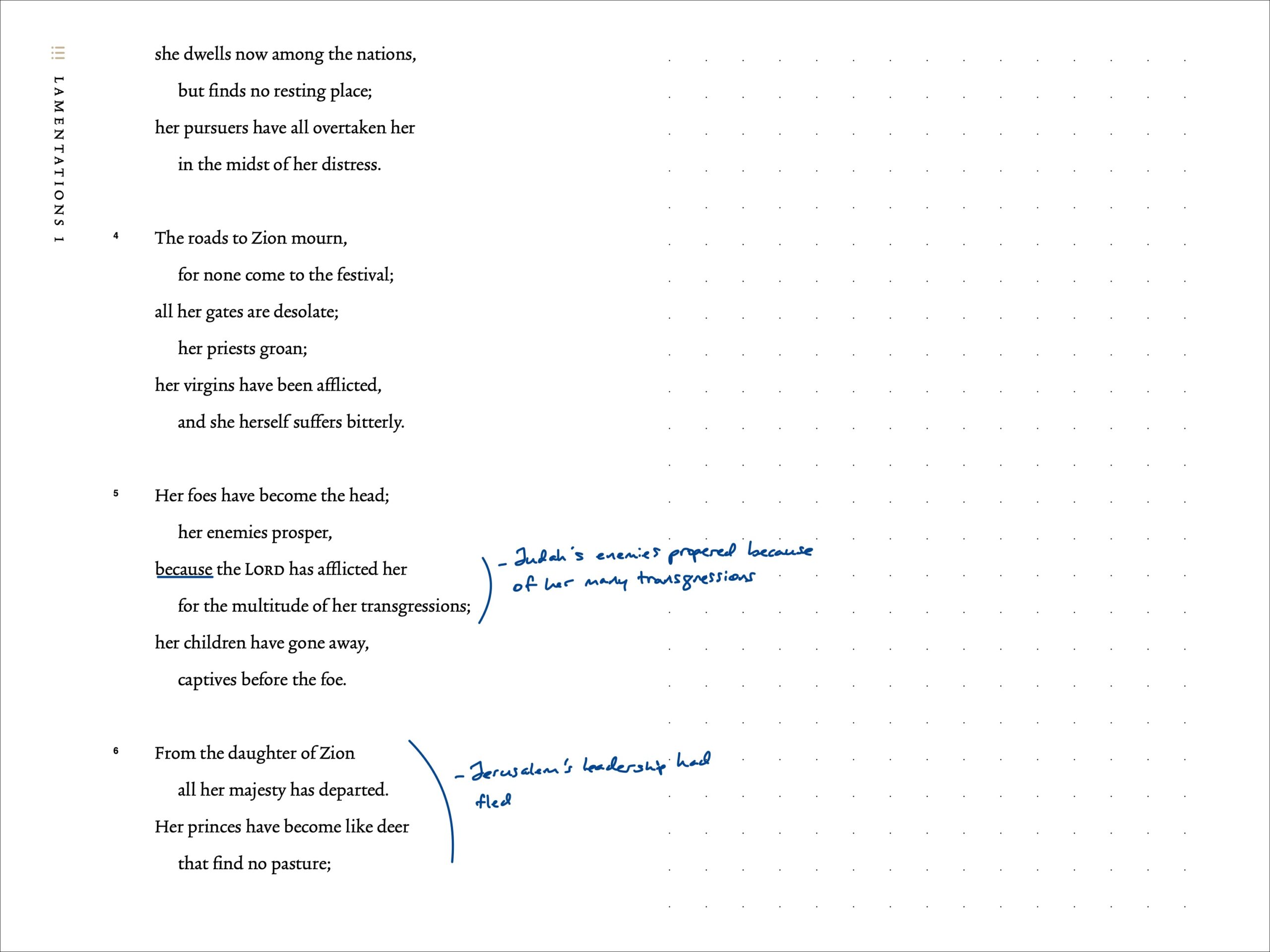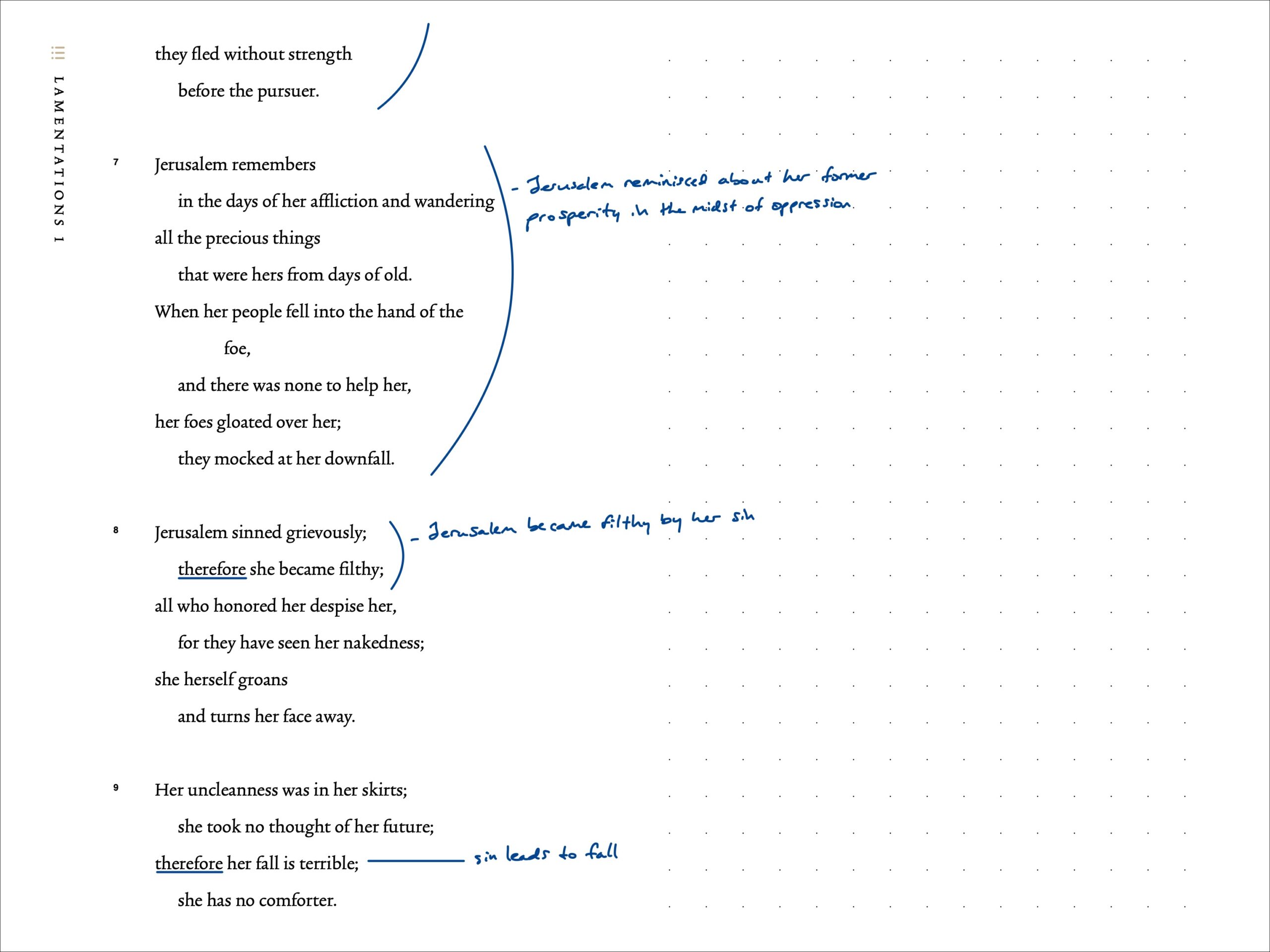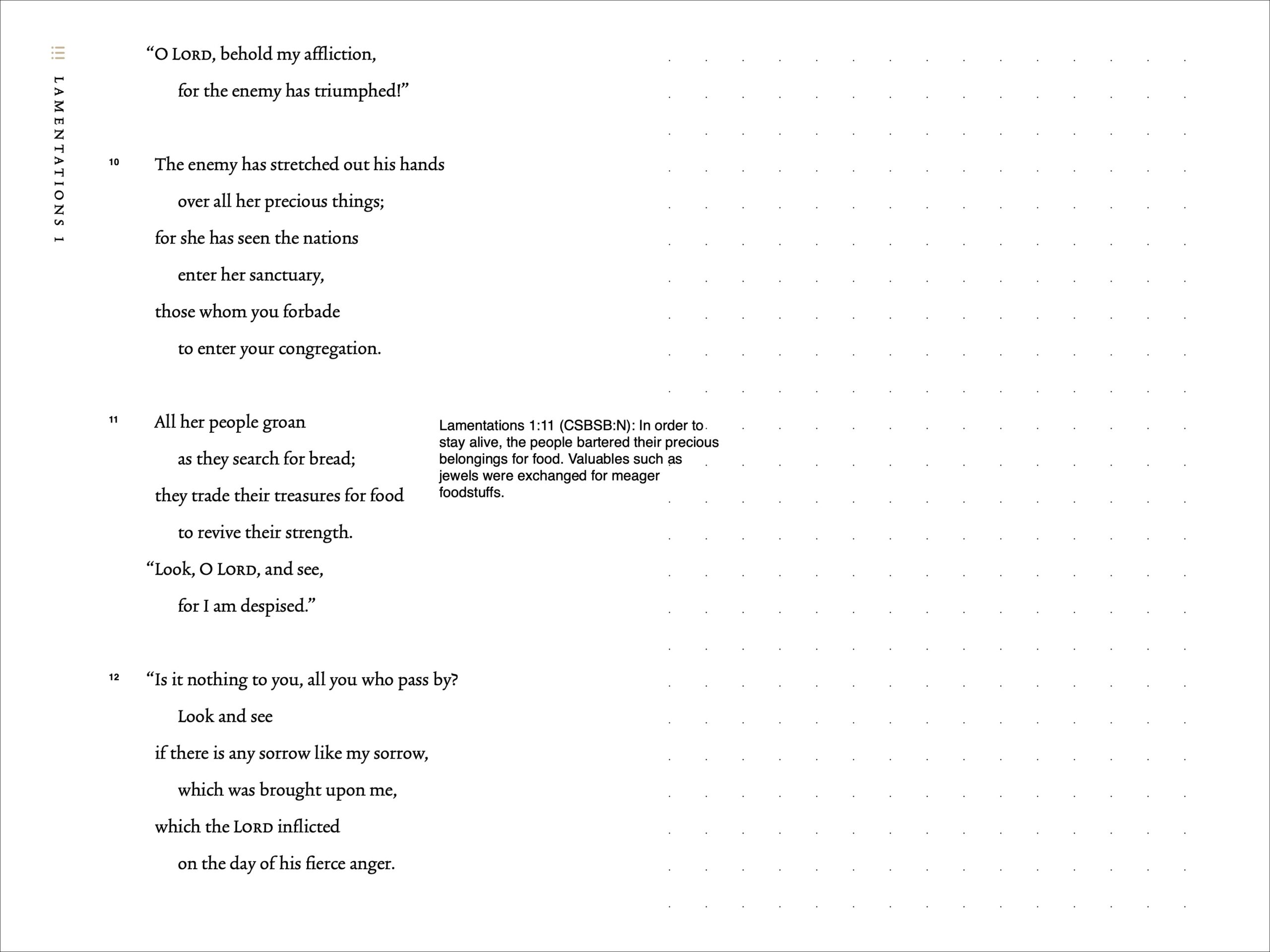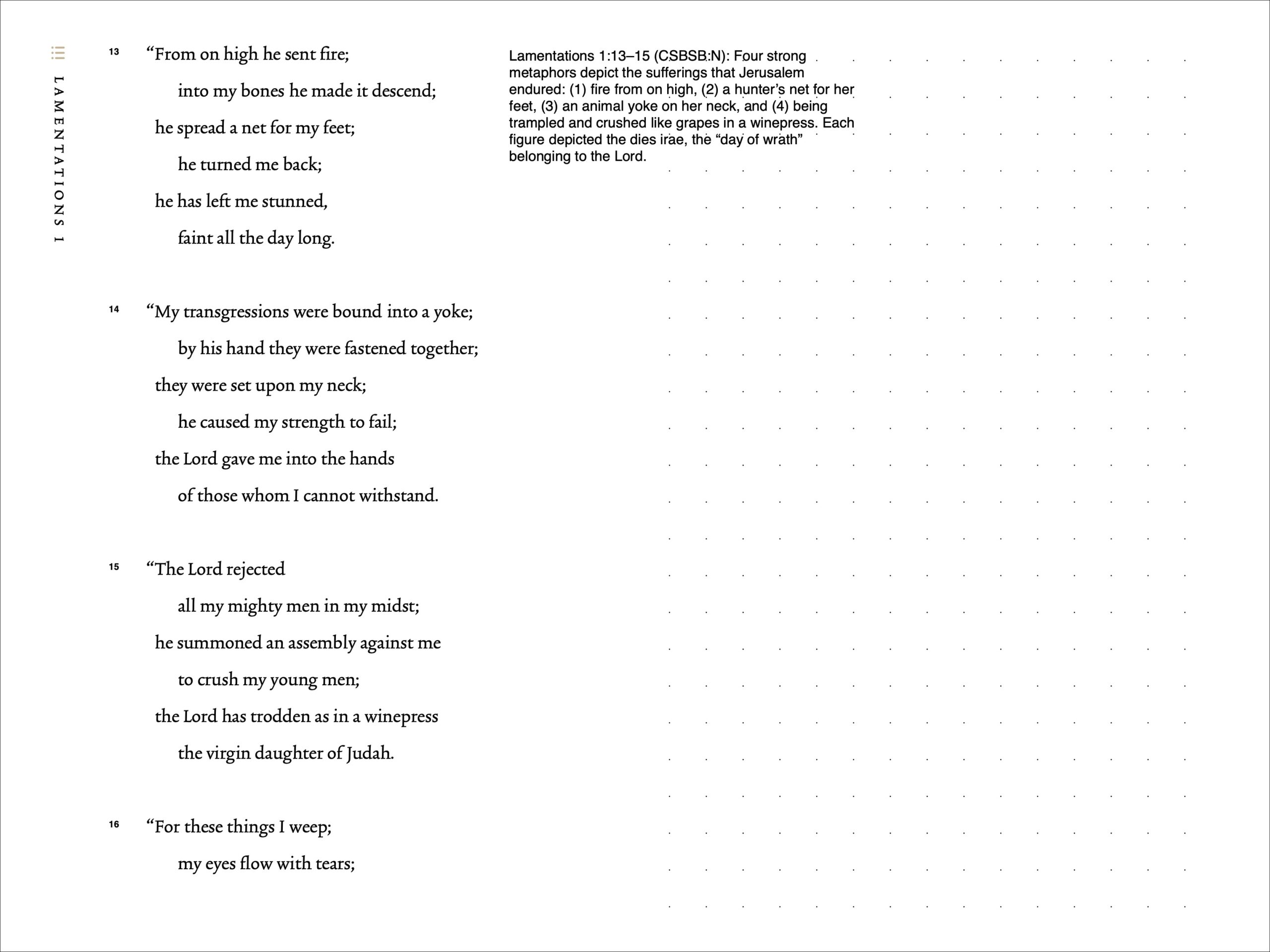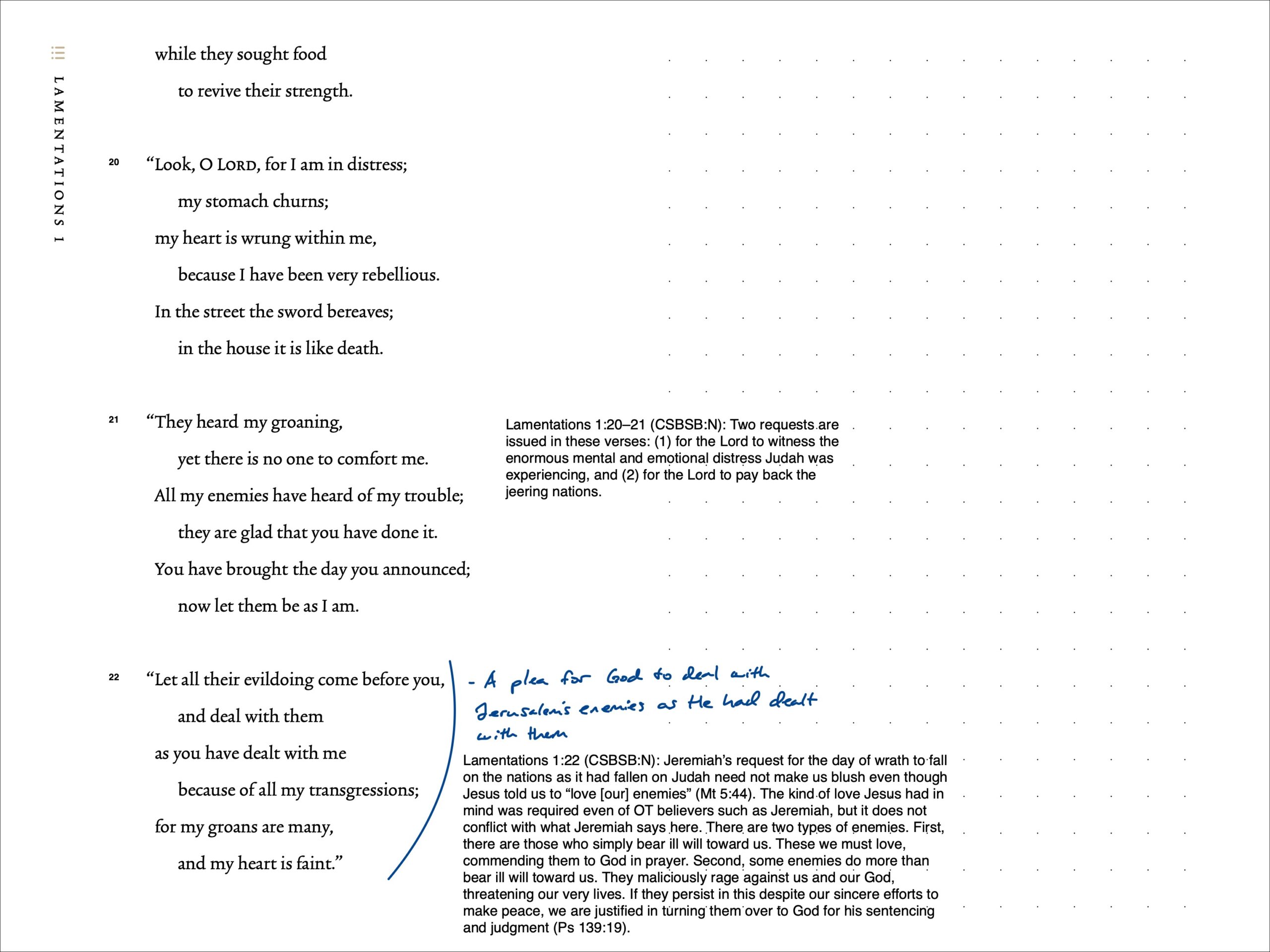| Date | Version | Reading Plan |
|---|---|---|
| @August 16, 2023 | ESV (2016) | ESV Prophets Plan 2023 |
Pericopes
- How Lonely Sits the City
Notes
Lamentations describes the results of Babylon’s destruction of Jerusalem in 587 BC in vivid and stylized detail and, while not technically a prophetic book (belonging instead to the “Writings” or “Ketuvim”), it seems worthy to include in the study given its widely ascribed author, Jeremiah.
The first chapter of the book opens with an exclamatory “How”, a word used in biblical texts for laments and funerals. Three contrasts are listed that Jerusalem was: 1) once populous but now is solitary, 2) once great among the nations is but now a widow and 3) once queen of the cities but now a tributary slave.
Lam. 1:3 describes the afflictions of war and famine, the heavy tribute paid to Pharaoh Neco and King Nebuchadnezzar of Babylon and a bitter exile. All combined, there was now no place where Judah could find rest.
In Lam. 1:5-6, there is a cause-effect of Judah’s transgressions leading to the prosperity of her enemies (a repeated theme throughout the chapter). This results in the the fleeing of Jerusalem’s leadership and that “all her majesty has departed.” (Lam. 1:6)
Lam. 1:7-10 depicts Jerusalem as reminiscing about her former prosperity in the midst of her oppression and “all her precious things that were hers from days of old.” (Lam. 1:7). It was because of Jerusalem’s sin that she became “filthy” and she now “groans and turns her face away (Lam. 1:8). Her uncleanness led to her fall and she “has no comforter.” (Lam. 1:9)
In Lam. 1:11, in order to stay alive, the people bartered their precious belongings for food. Valuables such as jewels were exchanged for food to “revive their strength”.
Lam. 1:13-15 contain four strong metaphors depicting the suffering of Jerusalem: 1) fire from on high, 2) a hunter’s neck for her feet, 3) an animal yoke on her neck and 4) being trampled and crushed like grapes in a winepress. Each figure depicts the “day of wrath” belonging to the Lord.
Lam. 1:17-20 tells of how Zion sought for comfort but there was none available. The Lord was against them in judgment and “commanded against Jacob that his neighbors should be his foes” (Lam. 1:17). Jerusalem admits her own guilt in Lam. 1:18 and that she had “rebelled against his word”. She called to her lovers but they deceived her and she was now in distress with a churned stomach and a heart wrung within her (Lam. 1:20).
In Lam. 1:20-21, there are two requests issued for the Lord to: 1) witness the enormous mental and emotional stress of Judah and 2) pay back the jeering nations. Judah’s oppressors were glad at all God had done against them and Jerusalem now wanted them to experience the same judgment (Lam. 1:21).
The final verse in the chapter (Lam. 1:22) is a plea for God to deal with Jerusalem’s enemies as He had dealt with them.
Application
While not technically a prophetic writing, the Lamentations of the prophet Jeremiah offers some amazing insights and lessons. Particular of note in the first chapter is the repeated theme of Judah requesting God’s treatment on her enemies with the same judgment they had received. This can seem at odds with Jesus’ teaching on loving one’s enemies (Matt. 5:44).
The CSB Study Bible Notes have a great exposition on this in presenting two types of enemies. There are those whom we are called to love that bear ill will toward us, but there are others who continuously rage in enmity against us and God. For the latter, if they persist despite our sincere efforts to make peace, our distancing ourselves from them is tantamount to heaping burning coals on their heads and turning them over to God’s sentencing and judgment.
We are to make every effort to love others as Jesus loves us, but sadly there will be individuals from whom we must walk away. I say this with great caution, however, as to not affirm or give credence to such things as covenantal/marital separation (barring any life-threatening circumstances). Every situation needs to be approached with prayer and supplication, that the Spirit would reveal the course of His greatest glory.
Scripture Journal Notes
Commentaries & Resources Used
- ESV Study Bible. (Wheaton, IL: Crossway, 2008)
- Faithlife Study Bible (Lexham Press, 2016)
- Believer’s Bible Commentary (Thomas Nelson, 2016)
- CSB Study Bible Notes (Holman Bible Publishers, 2017)
- Matthew Henry’s Commentary on the Whole Bible (Guardian Press, 1976)
- The Bible: A Reader’s Guide (Sterling Publishing, 2011)
- The Infographic Bible (Zondervan, 2018)
- ESV Digital Scripture Journal (Crossway, 2019)
